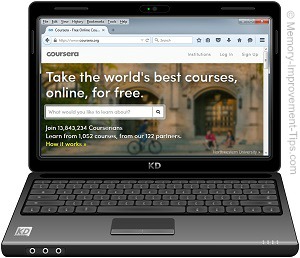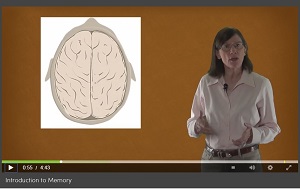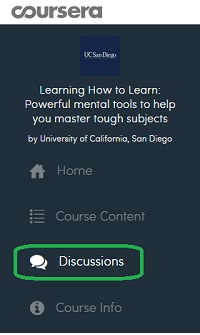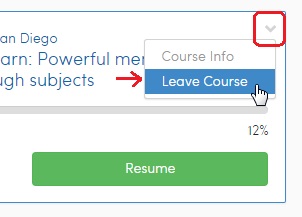- Home
- Better Memory
- Free Stuff
- Free Online College Courses
Free Online College Courses: How to Get Started
Advancing your education is easier than ever thanks to free online college courses offered by top universities. You can't earn a college degree by taking only free online courses. But you can enroll in and complete individual college-level classes from top schools like Harvard, Yale, Stanford, and many others, for free, right from your home computer.
If you've never taken a free online college class, don't worry. Below I explain how they work. I'll also explain how to enroll in your first course.
Lifelong learning is valuable and may be your primary interest. But there are also practical benefits of taking online college classes.
Having a few college-level courses under your belt can help you prepare for entry into technical school, undergraduate school, or graduate school.
If you are already in the workforce, these courses can provide you with continuing education in your field.
College courses are available online for free that can help you achieve important educational goals and/or boost your career. Amazing, yet true!
You won't be alone, either. Thousands of students of all ages and backgrounds are enrolled in free college online classes right now, including me.

Free college courses at your fingertips
I'm taking a college class online offered by the University of California, San Diego (UCSD). The course is "Learning to Learn: Powerful Mental Tools to Help You Master Tough Subjects".
I signed up through Coursera, an online free college course hub (more on this below).
By the way, the Learning to Learn course is a great choice as a first free college class to take. That's because it covers top study skills that can help you do well in college-level classes. The course also presents powerful new study techniques based on recent brain research.
So let's dive in and take a closer look at free college courses. By the end of this page, you'll understand the key concepts of taking free college courses. You'll also know how to choose and enroll in your first free class.
Do you already have experience taking free university classes online? Please leave some helpful tips for beginners in the Comments section below. Thoughtful advice is appreciated.
If you would like to contact me directly with feedback, corrections, or suggestions on how I could improve this page, feel free to send a message through my Contact Me page.
College Courses at Your Own Pace and No Cost
Having access to online instruction from multiple top universities is wonderful in itself. But it gets better. Following are reasons taking these courses is so worthwhile and practical:
Free. No cost, other than an optional paid verified certificate.
In certain cases, you may even be able to get the certificate for free. As of this writing, FutureLearn.com (based in the UK) offers a number of free online courses with certificates.
High Quality. Taught by top universities, using pre-recorded video lectures.
Flexible. Take at your own pace, from the comfort of your home.
Interactive. Course forums to communicate with instructors and other students.
No risk. Unenroll (quit) a course anytime.
Seldom in life can you get this much value at so little risk or cost. It's up to you, though, to seize the opportunity.
How the Free Online College Courses Work
Free online college courses are known as "MOOC's", which stands for Massive Open Online Courses. They are "massive" and "open" because anyone with access to the internet, anywhere, may enroll in the courses.
The variety and number of online free classes is astounding. You probably won't have trouble finding at least once course related to your area of interest.
To give you an idea of the vast scope of available classes, consider the number of courses in the class catalogs of Coursera, EdX, and FutureLearn, three major online free college course hubs.
Coursera currently offers 1,000 free college courses from over 100 partner institutions. EdX, another free online course hub, offers over 500 free courses. FutureLearn offers over 900 courses. Wow!
Available courses span a wide range of subjects, including the arts, business, life sciences, and chemistry. That's not all.
There are also classes in computer science, economics, education, engineering, health, and the humanities. There are free courses in law, math & statistics, medicine, music & film, physics, social sciences, foreign languages, and more.
Some advanced courses do have recommended prerequisites. You'll find them listed in the course description.
Instructors may advise career experience in a certain area before taking the class. For example, there is a recommended background for the free course "Teaching and Assessing Clinical Skills" offered on Coursera through the University of Michigan.
Instructors of that course ask that students be healthcare professionals working with learners in the clinical environment.
Or, it might be necessary to complete a lower-level free course in the same topic first. For example, if you've never taken Calculus (an advanced math course), it might make sense to complete the Pre-Calculus course first before attempting Calculus I.
Perhaps surprisingly, up to 90% who enroll in a free online college course never complete it. No doubt some are just curious, testing the waters so to speak.
Others underestimate the amount or difficulty of work involved. But if you are committed to investing the time and effort, you can succeed.
Free College Courses Online: It's Easy to Jump Right In
Signing up for free college courses is simple. You first create an account with one of the MOOC hubs like Coursera or EdX. Creating your account is a one-time thing.

College-level distance learning, for free
Then search the course catalog for a class you want to take. Click the enroll button on the course, and you're a member of the class. When you're ready for another course, simply go back to the catalog.
This process is less intimidating than you might expect. On Coursera, the enroll button is sometimes labeled with an encouraging "Join for Free!" message. Don't be afraid, jump right in, they seem to by saying.
If you've never taken an online college course, keep reading. Below I describe more about these courses so you can get an idea how they work.
Be sure to check out my how-to Enroll in Free College Courses with Coursera Online article when you're ready to begin.
Video Lectures: Lessons Pre-Recorded by Instructors
With free online college courses, you can't sit down in a physical classroom to listen to a professor. Rather, instructors pre-record video lectures accessible from the course home page.

Video Lecture
With an online video lecture, you can't raise your hand to ask a question. But in my experience there are huge advantages of watching a video lecture over being physically present.
First, since it's a video, the instructor has had time to edit out any mistatements, pauses, or other confusing aspects of the lecture that might occur during a live lecture in a classroom.
Second, you won't have any trouble hearing the lecture. In the physical classrooms at many colleges, dozens or scores of students are seated in a large room. If you're sitting at the back of the room, it can be difficult to hear the lecturer.
Third, and this is really wonderful, you can hit the Pause or Rewind button on the video lecture whenever you wish.
This means if you didn't quite catch some of the information, you can rewind and review it easily. If you're writing down notes, the Pause feature is beyond valuable.
I think you'll really come to appreciate the benefits of watching video lectures as part of the free online college courses. I certainly do. As far as questions are concerned, you can ask them in the course forum.
Discuss Class Material in the Course Forum

Discussion forum button
Unlike courses offered at a brick-and-mortar location, free online college courses don't bring students together in a physical classroom. But don't worry, there's plenty of opportunity for interaction with fellow classmates.
On Coursera and EdX, student interactivity is provided through a class forum. As soon as you enroll in a course, you'll have access to that course's online discussion forum.
The forum is where questions are asked and answered. On the forum, you'll be able to contribute and interact with your fellow students and the instructs.
To access the course forum on Coursera, click the Discussions link in the navigation pane along the left side of the course. You'll also find posts at the bottom of each course module.
Don't be afraid to post your thoughts and interact with the free online college course's community.
You'll likely get more out of the course if you take advantage of the forum to ask and answer questions about the course material.
No Obligation: You Can Quit a Course Any Time
There is no risk if you decide you can't finish one of the free online college courses you signed up for. You can either leave the course open in your course list indefinitely, or unenroll (quit the course) through a menu option. Unenrolling is probably preferable if you are certain you'll never return to the course.

Unenroll from a course at any time
Unenrolling through the course menu is fast and easy. For example, to unenroll a course on Coursera, simply choose "Leave Course" from the drop-down menu in the My Courses section.
Why allow students to unenroll a class they already started? I assume the universities offering these free online college courses don't want online students to feel trapped or cornered.
I suppose the goal is to encourage students to challenge themselves to learn and grow without worrying too much about the process. Having said that, consider the time and effort required before you sign up for a particular free online college course.
Some students sign up for more online classes at once than they can complete. They allow enthusiasm to get the best of judgment.
Plus, life throws a curveball every one in a while. Personal circumstance change. The unenroll option is there if you need it.
Note: On Coursera, special courses called Signature Tracks have an associated fee. To receive a refund for these courses, you must unenroll within the refund period. You can unenroll a Signature Track course from the signature track settings page.
Video Interviews, Printed Handouts, and Books
Many free online college courses offered through Coursera and EdX include bonus videos and handouts in addition to the core material.
For example, there may be pre-recorded video interviews with experts in that field. Supplemental reading material can help fill in details for those who want to take their learning a step further.
For some free online college courses, there are books you can optionally purchase that take the course material into even more depth. For example, the book
A Mind for Numbers: How to Excel at Math and Science, is supplemental reading for the Learning to Learn course I'm taking now.
Once you've completed one or two free online college courses, you might find yourself addicted to this free, self-paced method of gaining college-level education. Just go back to the Coursera catalog (or EdX catalog, if you're taking EdX classes), and find more great courses to take.
Be a lifelong learner. Not only can this be deeply satisfying, it's a great way to keep your brain healthy as you grow older. Use free college courses to give your brain a boost!
Published: 07/11/2015
Last Updated: 03/22/2021

Newest / Popular
Multiplayer
Board Games
Card & Tile
Concentration
Math / Memory
Puzzles A-M
Puzzles N-Z
Time Mgmt
Word Games
- Retro Flash -
Also:
Bubble Pop
• Solitaire
• Tetris
Checkers
• Mahjong Tiles
•Typing
No sign-up or log-in needed. Just go to a game page and start playing! ![]()
Free Printable Puzzles:
Sudoku • Crosswords • Word Search







